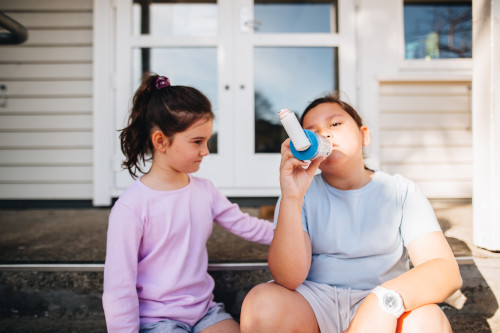
Tens of thousands of New Zealanders living with asthma are set to benefit from long-awaited changes that will make it easier to access essential, lifesaving treatment, marking a major step forward for asthma care in New Zealand.
Effective from August 1, people who use a 2-in-1 inhaler to manage their asthma will be able to collect a three-month supply in a single pharmacy visit, rather than returning monthly for repeats. This change is expected to benefit about 120,000 New Zealanders.
The move directly aligns with the New Zealand Adolescent and Adult Asthma Guidelines, which are developed and maintained by the Asthma and Respiratory Foundation NZ. The guidelines recommend the 2-in-1 inhaler as the frontline treatment for most adolescents and adults with asthma, used both as a preventer and a reliever.
Foundation Chief Executive Letitia Harding says this decision will make a huge difference to the 1 in 8 Kiwis living with asthma.
“When someone is having an asthma attack, they need treatment immediately – there’s no time to get a prescription filled.
“Patients often need to keep their reliever inhaler in multiple places – at home, school, work, their car – so enhancing access to life-saving asthma medicine will undoubtedly reduce the morbidity of asthma in New Zealand.”
The change would make asthma management significantly easier, particularly for families facing transport barriers or juggling multiple repeat prescriptions, Harding says.
“When you have to visit the pharmacy every month, it becomes a real burden.
“Allowing people to collect three months’ supply at once removes that hurdle and supports better treatment adherence.”
Foundation Medical Director Professor Bob Hancox says the move is a good example of evidence-based, patient-centred care.
“For the past five years, our guidelines have recommended 2-in-1 anti-inflammatory reliever inhalers for most adults and adolescents with asthma, as they are much better for preventing exacerbations than the traditional blue relievers.
“As well as benefiting patients, this decision will reduce the burden on the health system by preventing asthma exacerbations and hospital admissions.”
Pharmac is also proposing that medical centres be allowed to supply a number of inhalers directly under a Practitioners Supply Order (PSO), enabling healthcare practitioners to supply patients with inhalers for emergency treatment.
These changes come at a critical time. New Zealand continues to have some of the highest asthma rates in the developed world, with 1 in 8 people affected and 96 deaths each year (almost two people each week).
The total economic cost of asthma to New Zealand’s health system is estimated at $1.2 billion annually.
ENDS

